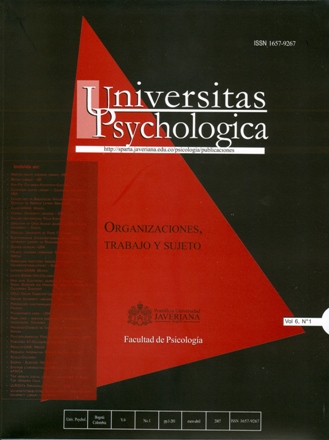Resumen
La investigación trata sobre la cultura organizacional en instituciones estatales y tiene en cuenta el debate internacional sobre la crisis del Estado y la necesidad de un rediseño de éste. Las premisas conceptuales con las que trabaja son las del enfoque histórico cultural de Vigotsky (1979) y Bruner (1991) que considera que la interacción entre el individuo y su entorno histórico cultural, en este caso el entorno organizacional, está mediada por el lenguaje. Acceder a la identificación de la cultura implica convocar a las narraciones de los relatos que evidencian las formas particulares de las instituciones del Estado. La investigación es de carácter cualitativo y asume las narraciones como formas de elaboración mental de la experiencia. Se trabajó con funcionarios de cinco instituciones estatales de los niveles directivo, profesional, administrativo y operativo, y los resultados se organizaron alrededor de los siguientes núcleos temáticos: organización, relaciones y rol laboral del funcionario.Esta revista científica se encuentra registrada bajo la licencia Creative Commons Reconocimiento 4.0 Internacional. Por lo tanto, esta obra se puede reproducir, distribuir y comunicar públicamente en formato digital, siempre que se reconozca el nombre de los autores y a la Pontificia Universidad Javeriana. Se permite citar, adaptar, transformar, autoarchivar, republicar y crear a partir del material, para cualquier finalidad (incluso comercial), siempre que se reconozca adecuadamente la autoría, se proporcione un enlace a la obra original y se indique si se han realizado cambios. La Pontificia Universidad Javeriana no retiene los derechos sobre las obras publicadas y los contenidos son responsabilidad exclusiva de los autores, quienes conservan sus derechos morales, intelectuales, de privacidad y publicidad. El aval sobre la intervención de la obra (revisión, corrección de estilo, traducción, diagramación) y su posterior divulgación se otorga mediante una licencia de uso y no a través de una cesión de derechos, lo que representa que la revista y la Pontificia Universidad Javeriana se eximen de cualquier responsabilidad que se pueda derivar de una mala práctica ética por parte de los autores. En consecuencia de la protección brindada por la licencia de uso, la revista no se encuentra en la obligación de publicar retractaciones o modificar la información ya publicada, a no ser que la errata surja del proceso de gestión editorial. La publicación de contenidos en esta revista no representa regalías para los contribuyentes.


